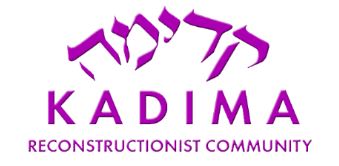We are three weeks into this seemingly new world, and it feels like lifetimes. Three weeks into what should have been a month-long period of mourning, and yet not a moment to mourn inside of the shock, retaliation and continued violence. Like the song for happier times goes: I can feel it in my body. In my spirit. In my soul.
In reading the parasha, Lech Lcha, with the Weekly Parasha Study group this week, we focused on Genesis chapter 14. In it we read a mythical geopolitical story about a regional war between two groups of kings. During the war, we are told that a particular hostage is taken: Abram’s nephew, Lot.
This parasha is where we begin to really focus on a particular family in the midst of the drama of humanity. Prior, we are told about all of humanity. Last week, with Noah, we have a central character that is not a Jew nor an Israelite, and while Jews can trace our biblical ancestry to him, so can every other human on earth. The same the week before with Adam and Chava (Eve). It is this week that we get particular as the narrative narrowly focuses on the ancestry of Noah’s son Shem (from whom the term “Semite” – the language/ethnic group for Arabic and Hebrew, among others – comes) until landing on Abram (who would later become Abraham).
And Abram seems undisturbed by the war in Genesis 14, raging throughout his region, until his very own kin is taken captive. When this happens, he acts, and he acts quickly. This is the first example in Torah of freeing the captive, the commandment of pidyon shvuyim which the Talmud tells us is a “great mitzvah.” We must uplift this call as we also demand a ceasefire – an end to this immoral war.
I am concerned about (and also guilty of) looking at a crisis when it only affects me or my family. We see Abram act when he hears particularly of his kin being held captive, but otherwise nonplussed by the war around him. On one hand, I can relate. The number of wars raging in the world that I could be privy to is large. We do not have the capacity as humans to respond to every crisis in the world, and the ones that affect our loved ones or the places we have deep connection call us to action moreso. And on the other hand, it is when we are pulled to attend to and act regarding an issue, but only see some of the people as important, that I take issue with.
If we are going to call for the release of captives, let us call for the release of the Israeli hostages taken by Hamas. Let us call for the release of the captives of Gaza who have been living in what is often called an “open air prison.” Let us also call for a release of all political prisoners in Israeli prisons and jails and beyond. Let us value the lives of each and every human and their deserving of pidyon shvuyim, not only for those we call our kin. And let us expand our idea of kin. I thank Kadima members who organized a zoom room this morning to share relationships with their dear friends in Gaza to help us do just that early today.
And I hope to see many of you this afternoon to continue to demand a ceasefire, or tomorrow to Share & Listen around this continued violence, or for havdalah tomorrow with space to grieve the thousands and thousands lost in these few short weeks. Again, I pray for a shabbat shalom as I pause my work and sink into rejuvenation for another go at it next week.
Wishing us all the healing power of shabbat,
R’ David
PS - I know for a fact that I and Kadima are not being perfect in this time. To be honest, we are doing our best to avoid perfectionism. And, if I have erred and it is sitting with you in ways that have created distance between us, please reach out or sign up on my calendar.

 RSS Feed
RSS Feed